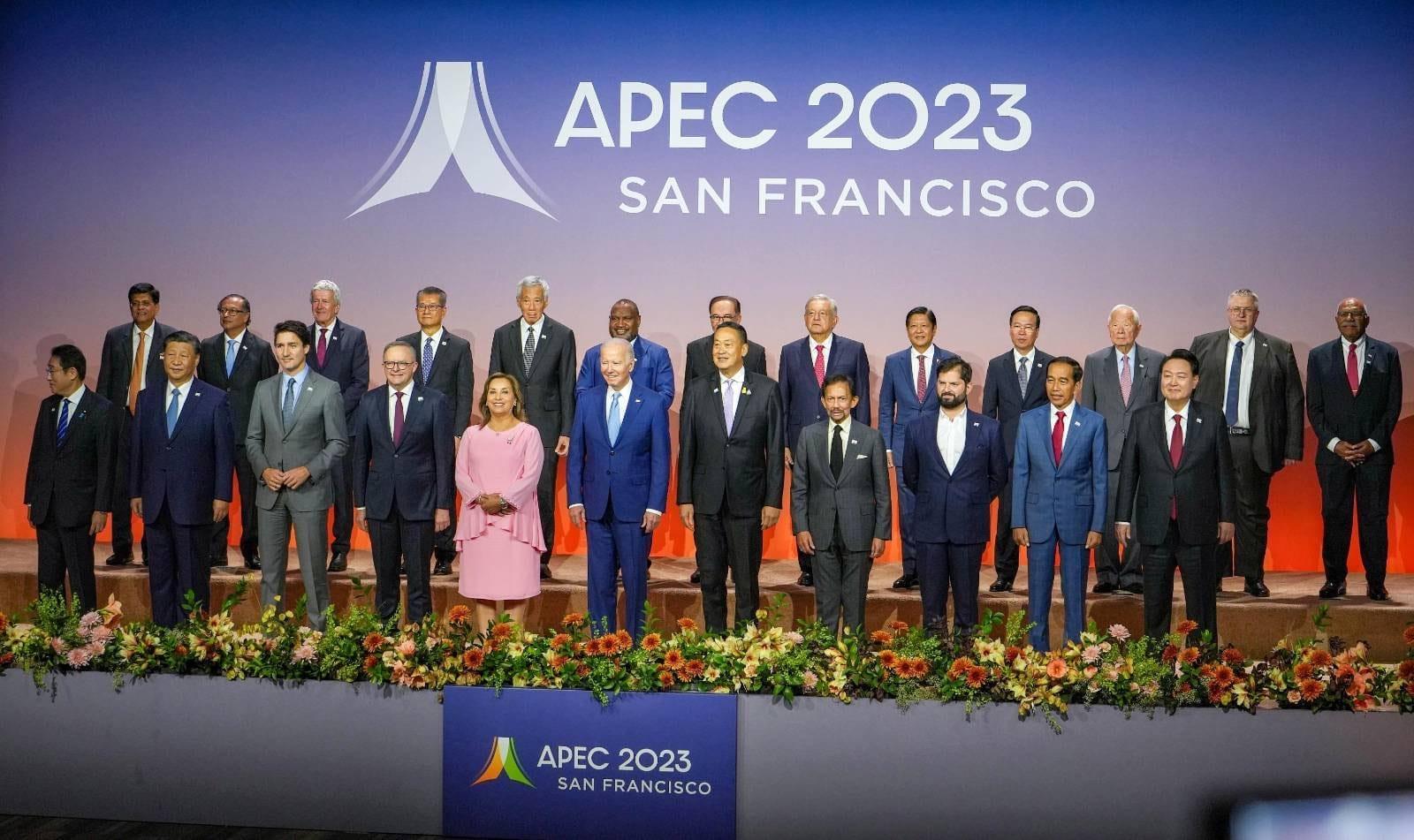News
PBBM calls on APEC members to strengthen economic, technical ties

President Ferdinand R. Marcos Jr. joins his fellow Asia-Pacific leaders for an informal dialogue with guests and the business sector during the 2023 Asia-Pacific Economic Cooperation (APEC) Summit in San Francisco, California on Friday (Nov. 17, 2023, Manila time). (Photo: Bongbong Marcos/Facebook)
MANILA – President Ferdinand R. Marcos Jr. on Friday (Manila time) urged the members of the Asia-Pacific Economic Cooperation (APEC) to enhance their economic and technical ties to make green energy solutions “accessible and affordable to all.”
During the APEC Leaders’ Informal Dialogue and Working Lunch at the Moscone Center in San Francisco, California, Marcos said the APEC could contribute to a trade and investment environment that assists economies in cutting emissions, facilitating climate financing, and supporting technology transfer, especially for the most vulnerable economies.
He cited the importance of regional cooperation, structural reforms, and capacity-building, as the regional bloc advances toward its sustainability and inclusivity goals.
“Technology diffusion ensures that green energy solutions are accessible and affordable to all. In this regard, I call for stronger economic and technical cooperation,” Marcos said in his intervention during the informal dialogue that tackled sustainability, climate, and just energy transition.
The President said the current economic climate presents APEC economies with several opportunities to drive peace, prosperity, and resilience in the region and the global economy.
Addressing the high cost of green technology
Marcos said the transition for both energy security and environmental protection and preservation in line with the climate goals must be done in a way that is “just, inclusive, sustainable, and affordable.”
The key to addressing the high cost of green technology, he said, is cooperation in its development, liberalization of the sector, and facilitation of green trade and investment.
“For our part, the Philippines has liberalized to full ownership in the solar, wind, and geothermal sectors, reduced tariff rates on environmental goods, and advanced the promotion and increased adoption of renewables in our energy mix and diversification of energy sources to include clean and indigenous sources and mainstream sustainable practices,” Marcos said.
“Digitalization and innovation are central to building a resilient and sustainable future by optimizing resource use, promoting clean technologies, and supporting smart cities and infrastructure.”
Marcos added that the use of science and technology, as well as innovation and cooperation in research, would help in reducing the costs of development, enhancing the quality of technologies, and expediting climate mitigation solutions.
He also emphasized the need to explore opportunities for collaboration on new and emerging sustainable fuels and technologies, storage systems, electric mobility, and critical minerals for storage, batteries, and cables.
Economic reforms
Economic reform toward greening the economy also plays a key foundational role, Marcos said, noting that having good regulatory practices and integrating innovation into regulatory policy development would provide APEC economies with an enabling environment to encourage and adopt a green economy.
“As regulators and decision-makers, ours is the responsibility to balance stimulating economic growth with protecting the public during this transition,” he said. “Capacity-building in the development of new models, scenarios, and risk assessment tools, sharing of data, and building of new reporting standards compatible with the evolving context would prove critical in both magnifying the collective impact of our individual actions and appropriately monitoring and evaluating our progress in the implementation of our objectives.”
Marcos said deeper collaboration in advancing and adopting affordable and accessible renewable energy and low-carbon technologies could steer economies away from fossil fuel reliance.
“On the demand side, the promotion of energy efficiency and conservation initiatives can reduce the demand for fossil fuels. Embracing these supportive approaches contributes to an equitable and inclusive transition,” he said.
“Just energy transition entails not only ensuring that affected and already underserved segments, such as micro, small, and medium enterprises (MSMEs) and rural and geographically disadvantaged communities continue to have access to affordable energy, but also that our ambition is supported by quality jobs and workforce development, human resource upskilling, infrastructure connectivity, and blended finance packages.”
Marcos also commended the United States for sparking critical discussions warranting commitment, as well as for its excellent chairmanship of APEC this year, bringing economies “closer to a sustainable and resilient future.”





















